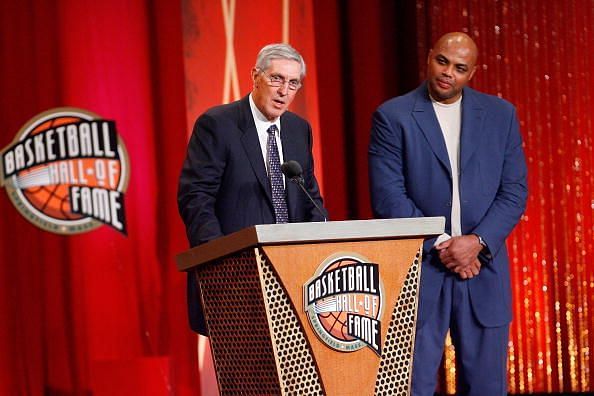
NBA Top 50 Greatest Of All Time: #19 Charles Barkley
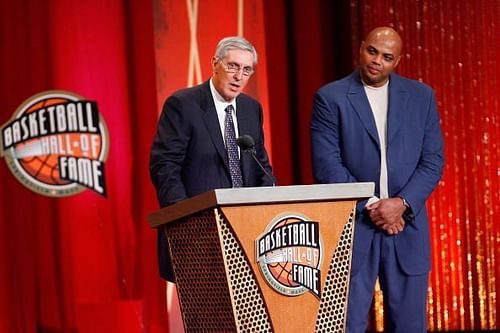
"Barkley is like Magic [Johnson] and Larry [Bird] in that they don't really play a position," Bill Walton said in a SLAM magazine issue that ranked NBA greats. "He plays everything; he plays basketball. There is nobody who does what Barkley does. He's a dominant rebounder, a dominant defensive player, a three-point shooter, a dribbler, a playmaker."
Who would have thought a chubby kid out of Auburn could accomplish so much?
As a player, Charles Barkley is pretty obviously one of the greatest anomalies in basketball history. Listed at 6-6 but actually closer to 6-4, he played power forward as well as anyone in the history of the NBA, in an era that had giants playing a much more physical style of defense than the league allows in today's fast-paced era.
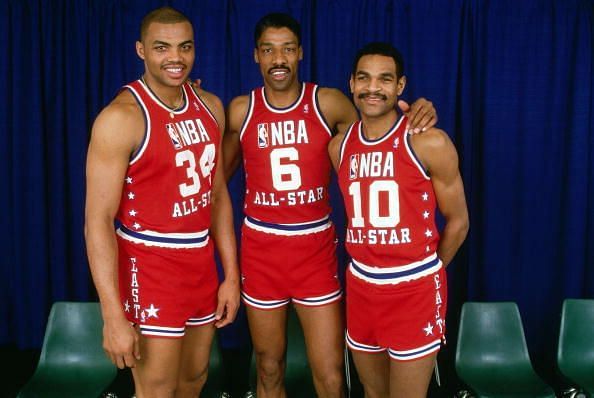
Along with Kareem Abdul-Jabbar, Wilt Chamberlain, Karl Malone, Barkley is one of only four players in NBA history to have compiled at least 20,000 points, 10,000 rebounds and 4,000 assists.
Some never thought he'd ever get that far. Though Barkley brought vitality, attitude and a host of skills to professional basketball, he was viewed as an oddity coming out of college. He entered the 1984 NBA Draft as a junior and was taken by the Philadelphia 76ers with the fifth overall pick.
Barkley joined a veteran-laden team with stars such as Julius Erving, Moses Malone and Maurice Cheeks -- players who took Philadelphia to the 1983 NBA championship. Unfazed, Barkley averaged 14.0 ppg and 8.6 rpg and earned a berth on the NBA All-Rookie Team.
Nicknamed the "Round Mound of Rebound", many considered Barkley an undersized power forward with rebounding as his only discernible basketball skill before the start of the season. Barkley made sure to knock the living daylights out of that notion in his rookie season.
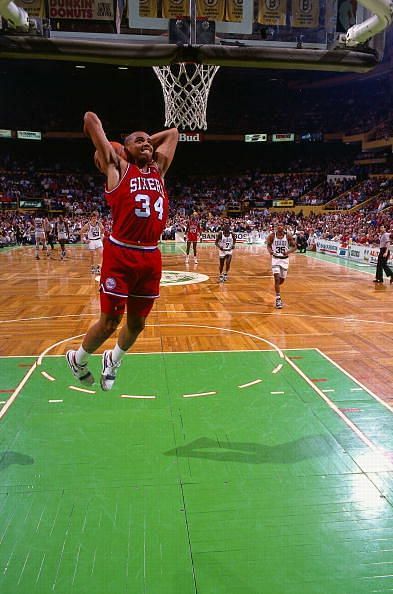
One of the most common sights of his early-career days was watching Barkley grab a rebound amongst a crowd, rumble downcourt with the ball and finish with a monster slam. In a half-court offense, he had the skill to put the ball in the bucket from inside the paint over the towering bigs of the day, as well as drawing them out to the perimeter and hitting them with jump shots facing up.
His awe-inspiring play demanded full respect and earned him a new nickname: Sir Charles.
Barkley's fourth year, his first as co-captain of the Sixers, proved to be one of his most productive seasons. He finished fourth in the NBA in scoring (28.3 ppg), sixth in rebounding (11.9 rpg), third in field-goal percentage (.587) and was named to the All-NBA First Team for the first time in his career.
It was a bittersweet season, however as he also missed the playoffs for the first time in Dr. J and Moses Malone's absence - Moses had been traded to the Bullets in 1986, while Erving retired after the '86-87 season and left Barkley alone as the franchise superstar for the following season.
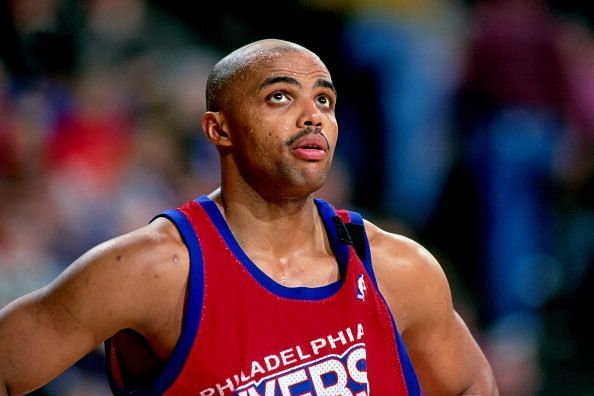
Barkley was a true superstar by the end of the 1988-89 season, finishing 6th in MVP voting with averages of 25.8 points, 12.5 rebounds, 4.1 assists, 1.6 steals and 0.8 blocks per game. He finished second (with the highest first-place votes) the following season in the deepest MVP race of all time, when Larry Bird finished tied 10th with averages better than 24/9/7.
The Sixers were unable to surround him with the requisite talent for a deep playoff run past the Pistons and the Bulls, and they missed the playoffs in his 8th and final season for the franchise (1991-92) as he was named to only the All-NBA Second Team for the first time in 5 seasons.
The summer of 1992 was a memorable one for Barkley. On June 17, almost immediately after being legally cleared of criminal charges resulting from an earlier barroom brawl, Barkley was traded to Phoenix, renewing his hope for an NBA title. Later that summer, he was the leading scorer with 18.0 ppg for the Dream Team at the 1992 Olympics in Barcelona, Spain.
In Barkley's first season with the Suns, the team had the NBA's best record and he became only the third player to win league MVP honors in the season after being traded. For the year, Barkley averaged 25.6 points and 12.2 rebounds to rank fifth and sixth, respectively.
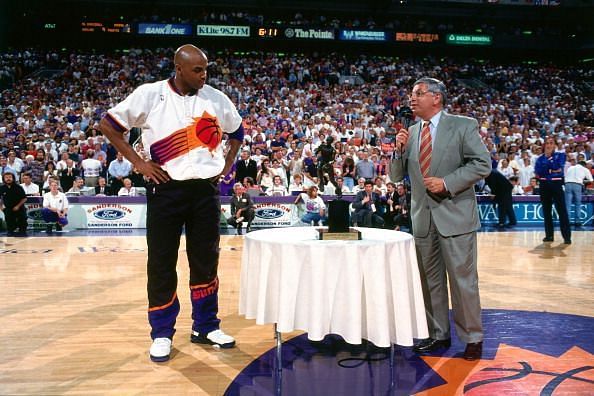
The nine-year veteran then carried Phoenix all the way to the NBA Finals. Chicago defeated Phoenix 4-2, but Barkley was brilliant, averaging 26.6 points and 13.6 rebounds in 42.8 minutes per game in the postseason, including a mesmerizing 44 points and 24 rebounds in Game 7 of the Western Conference Finals against the Seattle SuperSonics.
Things were looking up for Barkley and the Suns, but unfortunately, injuries would hamper him for the remainder of his career. Because of an aching back, Barkley vowed that the 1993-94 season would be his last. He managed 21.6 points and 11.2 rebounds per game and was selected to play in his eighth consecutive NBA All-Star Game (which he opted out of because of a torn quadriceps tendon in his right leg).
He continued to play in the NBA, however, albeit with a lower impact than he had before. He was traded to the Rockets in an attempt to form a superteam with Clyde Drexler and Hakeem Olajuwon in 1996, leading to a couple of more deep playoff runs but no championship success.
Barkley retired after the 1999-2000 season and was inducted into the Naismith Memorial Basketball Hall of Fame as a first-ballot selection 6 years later.
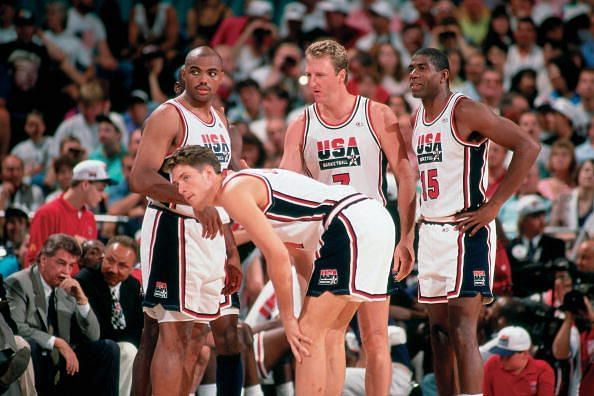
When the conversation turns to Barkley's exploits, many people think first of the forever entertaining, outrageous running commentary on basketball and life that he provided throughout his celebrated 16-year NBA career. His comments before the Dream Team's first Olympics game against Angola are about as hysterical as one can get.
I don't know anything about Angola, but Angola's in trouble.
As are his comments on him not wanting to be a role model for youngsters in his generation following his trade to the Suns:
I’m not a role model. Just because I dunk a basketball doesn’t mean I should raise your kids.
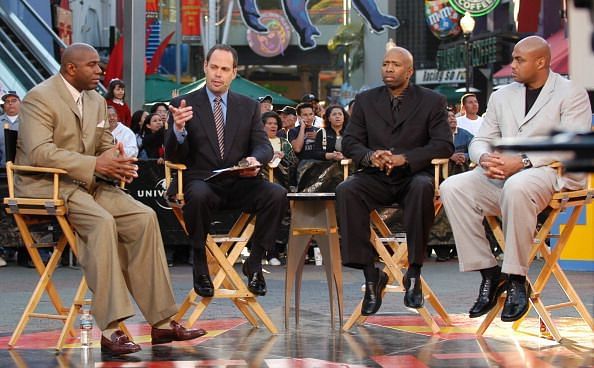
Through several years of working with TNT on their award-winning NBA show Inside The NBA, Barkley has consolidated his reputation as an entertainer and NBA personality who helps make the league that much more relatable for ardent fans like you and me.
Ernie Johnson, Barkley and Kenny Smith deserve some credit for keeping the NBA's popularity soaring through the lean viewership periods of the mid-2000s. In my opinion, Barkley should lord his Emmys over Shaq whenever rings are brought up, but again, maybe that's just me?